Samuel L. Jackson, Danielle Deadwyler and Common on How Going to an HBCU Helped Them Succeed in Hollywood
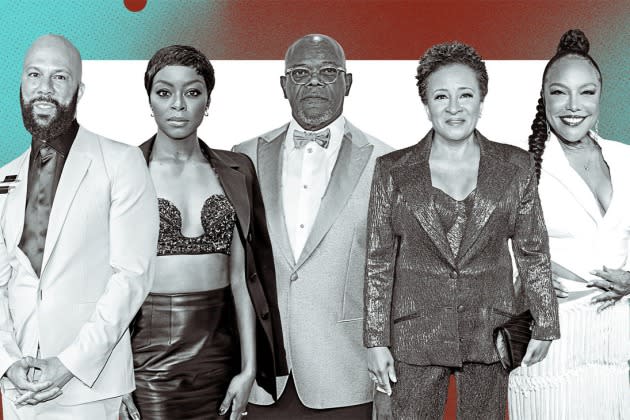
In the three decades since School Daze and the equally influential TV series A Different World were released, HBCUs, or historically Black colleges and universities, have seen a resurgence of much-needed attention. In 2019, Beyoncé’s Homecoming docufilm celebrated Black marching band and dance team culture, a pinnacle of any HBCU football game. The 2021 inauguration of Vice President Kamala Harris put her undergraduate university Howard in the national spotlight; that same year, the Washington institution would rename its College of Fine Arts in honor of the late Chadwick Boseman, who graduated there in 2000, with Phylicia Rashad as dean.
For HBCU alums working in Hollywood, there’s a connective thread of deep pride for their educational foundations. THR spoke with nearly 30 executives, producers, directors, actors and writers who collectively acknowledged how their collegiate experience best prepared them for the multifaceted demands of careers in entertainment. While some have built formal alumni networks to pull forward the next generation of Black creatives and thinkers, others nurture their personal connections, staying true to the African proverb, “Each one, teach one.”
More from The Hollywood Reporter
Howard University
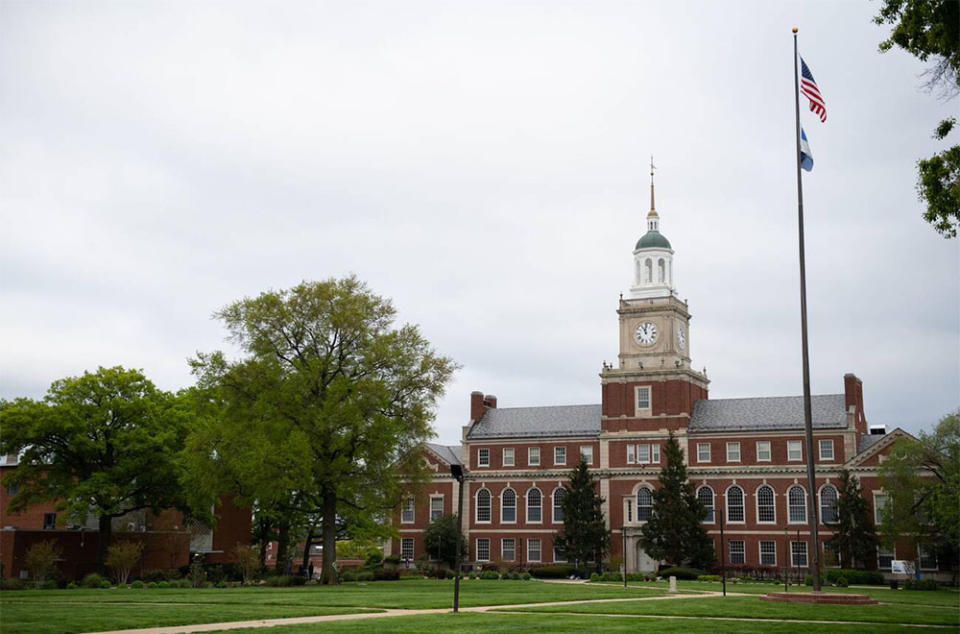
Five Black Greek letter organizations, including Alpha Kappa Alpha — of which Vice President Harris is a member — began at Howard, which was founded in Washington in 1867 and is coed. Other notable students: Anthony Anderson, La La Anthony, Sean “Diddy” Combs and Taraji P. Henson.
Lynn Whitfield
Emmy winner for outstanding lead actress in a miniseries or special for 1991’s The Josephine Baker Story
“I knew what I wanted to do since I was 5 years old,” says Whitfield (right), a third-generation Howard Bison who studied with the university’s acclaimed theater program, which also taught Phylicia Rashad, Debbie Allen and Taraji P. Henson. “So I said, it’s better for me to go to Chocolate City [D.C.] to Howard University, where I can walk in on equal footing with my abilities and my desire to learn and do my best.”
Charles King
Macro CEO and founder and producer of 2018’s Sorry to Brother You, which won the Independent Spirit Award for best first feature
King chose his alma mater for a number of reasons, “from the history of Howard University and Howard law school to the titans who went there,” referring to the first Black Supreme Court justice, Thurgood Marshall, as well as his own alumni father and uncle. The award-winning producer studied entertainment and civil rights at the law school. “Frankly, the education I had and my undergraduate experience at Vanderbilt was great,” he says. “But I was looking to have a different experience in terms of connectivity to community, in addition to a strong educational background. I knew Howard would provide me with both of those.”
Debbie Allen
Actor, producer, director, actress, choreographer, six-time Emmy winner
“When I’m looking for who’s best for the job, it’s always been who’s best for the role, however I would feel remiss to say I don’t pay attention when I see a young person who is from an HBCU because it does resonate,” says the multihyphenate. “In fact, I just hired my new assistant from an HBCU, and of course she’s from Howard University.”
Allen adds, “I love that I was just bathed and birthed in my cultural identity at Howard, my dad’s alma mater. He had gone to dental school there. It was everything to have all these incredible Black professors, from Dr. Frank M. Snowden, who wrote this incredible book Blacks in Antiquity: Ethiopians in the Greco-Roman Experience, to Professor Eleanor Traylor, whom Harvard and Yale had been trying to steal for the past 40 years. There’s so many professors: Glenn Dixon, Joseph Harris. When I did the movie Amistad, those were my consultants.”
Pete Nicks
Emmy Award-winning cinematographer and producer; director of upcoming documentary Anthem
“My story was unique in that I was a mixed race kid. I was born in 1968, basically into the story of race in America. My birth mother was white, my birth father was Black. Her family threatened to disown her if she married this Black man. She put me up for adoption, it was very difficult decision for her,” says Nicks, who would be adopted and raised in a Black family. “Any young Black man in America coming of age is going to face questions on some level. But I faced deeper identity questions. The ultimate decision for me to go to Howard had a lot to do with me wanting to understand more what it means to be a Black person in this world. When I visited the school, there was just something that drew me to it, so I made the decision to go.”
Layne Eskridge
President, POV Entertainment; producer of 2021’s In Our Mother’s Gardens
“At Howard, everybody wanted to make sure … that we all made it through. But I felt at NYU, where I went to film school … there just wasn’t that sense of community,” says Eskridge, who felt the stark difference between the education at her HBCU and PWI, or predominantly white institution. “With my classes at Howard, I got more from them than I did at NYU, which I felt was very by the book: We had the syllabus, we followed it. Also I felt that how you measured success at NYU was more transactional. From a curriculum perspective, at Howard, we studied very specific Black people and their contributions, whereas the curriculum at NYU, I had to take Black cinema classes to actually get that in. For core classes in our medium, we were not watching Black films at all. That was a shock to me and a little bit of a disappointment; it was a missed opportunity, because I felt like everybody would benefit from seeing some of these films. I actually raised that point, and I hope it’s been changed, but I actually don’t know.”
Aisha Summers Burke
Executive vp head of creative, BET Studios
“In terms of setting up [career] pipelines, the ones from HBCU/East Coast to L.A./entertainment need to be stronger. There need to be more people involved making sure those students understand the opportunity here. Most students think there are three jobs: You’re the writer, the director or the actress, but there are 1,000 jobs or more in this business. You can be an AD, set photographer, set designer, an executive … there are some really great roles and so many other aspects of entertainment,” says Burke.
Arleta Fowler
Agent, CAA
“I was going to pass up the interview with CAA because at that time, being an agent had a negative connotation in my head,” remembers Fowler, who focuses on talent in their digital media group. “But it was my Howard crew, who had moved to L.A. Some were in law school, some in production. They said, ‘Are you kidding? CAA is so incredible. They’re a powerhouse in the industry. You have to go.’ I will always credit my alumni network, because I could have missed out on a really big opportunity if it were not for them.”
Morehouse College
The all-male college that moved to Atlanta in 1879 after being founded in 1867 in Augusta, Georgia, counts Martin Luther King Jr., Spike Lee and Brian Tyree Henry among its graduates.
Samuel L. Jackson
Actor, Pulp Fiction, Coach Carter, The Avengers
“The theater professors at Spelman [where Morehouse students sometimes took classes] really encouraged us to meet the business side of acting head on,” says Jackson (above). “We had to go outside of the school and find agents and to book professional acting gigs in and around Atlanta in theater, film and TV. We were expected to maintain our creative and performance obligations to the Morehouse Spelman Players at the same time. It was great real world training for us to learn what it truly meant to be working actors.”
John David Washington
Actor, BlacKkKlansman and Tenet
“With the experience I have had on a Spike Lee set, I call Morehouse Spike University now,” explains Washington. “There’s not a lot of people who look like me, and when you do see someone and say, ‘Hey, did you work with Spike?,’ it’s a look, a nod and a laugh because you understand exactly what that means. It’s a badge of honor I wear when I think about the umbrella Spike and all the talent he’s found and produced and given the chance to blossom.”
Kevin Parker
Talent manager, Artists First
“I was at Morehouse in the mid-’90s,” recalls Parker. “The music business is on fire in Atlanta, plus all the athletes were coming down. Chris Tucker opened a club, and all the comics were going through there. At the same time, I had a screenwriting professor, Ray Grant, who was a stand-up. He took me to a comedy club, and it was over after that. I worked in a nightclub, but if I wasn’t there, I was in a comedy club. That time gave me a foundation to be in this business. And it was more in the way Morehouse gets you ready to be a professional in the world and you have to figure things out. It also gives you the confidence to do so.”
Brandon Lawrence
Agent, TV scripted department, CAA
“I can’t think of another place in this world, let alone in the States, that graduates that many Black men every year,” says Lawrence. “When you look out into the crowd, and see that many Black men graduate from a higher education, that’s something you can’t really duplicate anywhere else. It’s a feeling of hope. It’s a feeling of excitement. But more importantly, it’s a feeling of responsibility. This ultimately carries on through the institution and through me today.”
Montrel McKay
President of development and production, Issa Rae’s Hoorae
When discussing the importance of HBCUs, McKay references an organization and an agency initiative as corporate pipelines for students from historically Black universities getting jobs in entertainment: “[Entertainment Industry College Outreach Program’s] HBCU in L.A. and the program at CAA, their teams are doing incredible work looking for people, recruiting during homecoming,” he says. “In general, there’s more understanding about the importance of diversity. What Issa and I want is to make sure that there’s socioeconomic diversity, because you can recruit kids who had everything. For us, it’s trying to find that next generation of people who get overlooked. Now they’ll look at a Hampton on a résumé, Howard on the résumé, Morehouse, Spelman and FAMU — these résumés are great. But what about the people who don’t have blue chip schools on their résumé, who didn’t go to college or who maybe had a slow start? We have to really start thinking about that. But I definitely think this is a step in the right direction.”
Kyle Mosley
Director, content strategy, Netflix Original Film
“When it comes to my career in entertainment, I always had a deep passion for film and TV,” says Mosely, a self-described late bloomer. “But it wasn’t until I was out of college and worked in the real world that I realized I could actually have a job here. I was living in New York and living two parallel lives. I was consulting big media and consumer companies at McKinsey [a global management consulting firm], but in my second life, I found these large blocks of time and produced independent TV and film projects. Through my Morehouse network, I had this incredible group of really creative friends who wanted to get their scripts made into projects. I told them, “That sounds interesting to me.” I didn’t know that what I was doing was producing. Then I moved to L.A. because I was able to find a gig that that blended the two. But if you had told me in my early 20s, or when I was at Morehouse, that careers in Hollywood could exist without being talent, I wouldn’t believe it. I didn’t really have exposure. As much as we can create exposure for people to create these opportunities, that is the path.”
Marquis Phifér
Head of cultural programming, Lena Waithe’s Hillman Grad
“I would say Beychella got it right,” says Phifér on what piece of pop culture perfectly captured the HBCU experience. “I was there, and at that time, you didn’t know what to expect. We only knew that Beyoncé was headlining Coachella. But it wasn’t until I see the majorettes and the marshals when I said, ‘This feels like homecoming.’ At this point, we’re seeing it live, so it’s not branded as Homecoming. It wasn’t until it came out on Netflix a year later that we were able to see the behind-the-scenes and how the story was put together. Everything she portrayed onstage is what I’ve experienced, even the BTS footage of why we do what we do, and the ancestors that we come from and why it’s so important to continue adding to that legacy. It was beautifully done.”
Spelman College
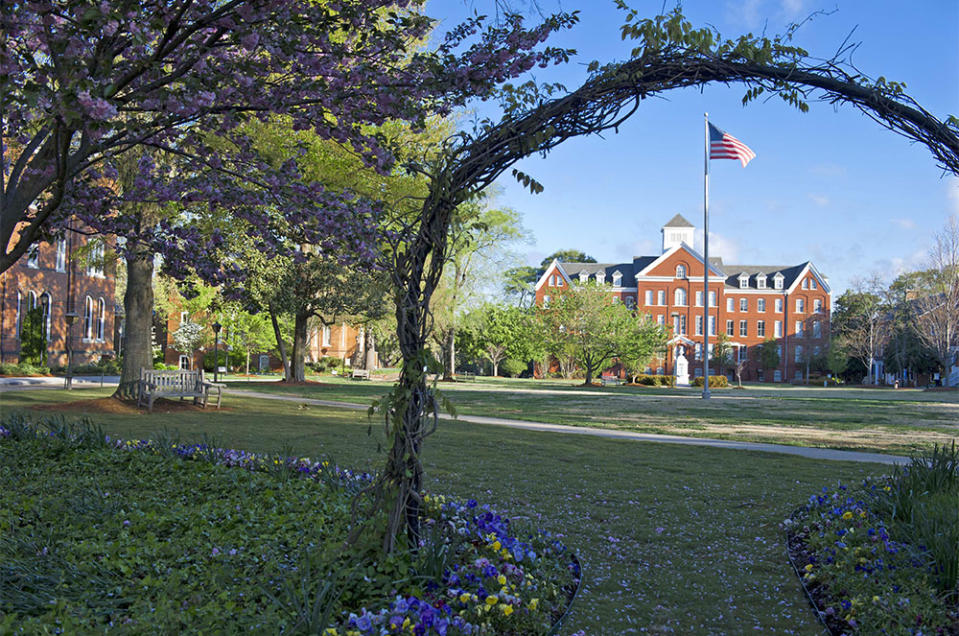
Spelman’s name is in honor of Mrs. Laura Spelman Rockefeller (and her antislavery parents, Harvey and Lucy Spelman), who founded the college in 1881 as a female seminary school in Atlanta. Alice Walker, Stacey Abrams and Keshia Knight-Pulliam have attended.
Danielle Deadwyler
Actress, Till and The Harder They Fall
“I love the energy that School Daze has,” says Deadwyler (left), of the movie based on Spike Lee’s experiences at Morehouse College. She not only grew up in Atlanta but also attended what is informally known as Morehouse’s sister school (events between the two are referred to as SpelHouse). “There is truth in the way that folks who came from other cities were engaging with Atlanta locals in the community. The energy that was there, the vibe of social enjoyment, the cheekiness and sneakiness of being that kind of young, curious, messy human being at that time. School Daze definitely does it for me in that regard.”
Traci Blackwell
Head of targeted scripted TV at Amazon
“There’s a joke about those who went to Harvard and how they work into the conversation that they went to school in Cambridge, or to Harvard. That’s how we are. That’s how proud we are that we went to [Spelman],” says Blackwell. “I was there when Johnnetta B. Cole was president. We were taught by Alice Walker, author Pearl Cleage, director Julie Dash [the first African American woman to have a feature film, Daughters of the Dust, distributed theatrically] and Martin Luther King’s sister, Christine King Farris. The people who we not only met but were able to learn from is insane.”
Natasha Foster Owens
Senior vp production at HBO
“Someone asked me if HBO could make a corporate donation to Spelman because they were building a technology building on campus,” recounts Owens. “But the timing didn’t work because we were in the AT&T merger. I said to my Spelman sisters, ‘We can’t get the company to donate, but what can we do?’ We created a summit that lasted two days during homecoming week. Five of us can show up as HBO executives, but I picked up the phone and said, ‘Hey, Morehouse brother [Montrel McKay, who runs Issa Rae’s company], I met you last week. I need you to come to Atlanta for homecoming.’ We had 50 SpelHouse [Spelman and Morehouse] individuals come together. They flew themselves. They participated because we said we needed help. It was the moniker that Spelman is known for: ‘Be a choice to change the world.’ “
Kalia Booker King
Executive vp television, Ryan Coogler’s Proximity Media
“Obviously, A Different World,” says King about the television series that foreshadowed her days at Spelman. “That show represented a mecca of Black-dom. It was a place where young Black kids were exploring, learning … talking about important topics and waxing poetic about the things they were reading. You were just in this bubble of Black excellence for four years, where you were protected, you were poured into you, you had a ton of fun and it was a beautiful campus. Being a kid watching that show, then actually being there and now as an adult, I look back on a lot of themes, the step shows and eating down at the café … all of those things were closely replicated [on the show] in an authentic way.”
Brittany Scott Smith
Director and producer, A Black Lady Sketch Show and All I Didn’t Want for Christmas
“I mentor a lot of young people who are 19 and 20 years old. I bring them around my friends and I tell them, ‘She’s a costume designer, talk to her about what her job is.’ I tell them: ‘Whatever you see as your vision for the future of what you want to do, you can make that a reality,’” says Smith, who as a teen attended Spelman alumni lunches hosted by Rolonda Watts. “[As HBCU alumni,] we’ve done a much better job of opening that door and creating the pipeline to get us in. I’m on an email chain, and they send out [entertainment] jobs. It lets the younger generation know that this desk is opening up or they’re looking for production assistants. Many PWIs [predominantly white institutions] do that very well [for their student bodies]. There’s a Syracuse newsletter about entertainment jobs and we’re getting much better at doing that.”
LaTanya Richardson Jackson
Actress, producer and director, August Wilson’s The Piano Lesson
“I don’t know what a Hollywood career is. [Attending Spelman] prepared me for the craft that allowed me a career that’s viable on any medium. I’m not so Hollywood, my husband is the star. I’m not,” says Jackson of her husband Samuel L. Jackson, who was attending Morehouse College when they met. “Spelman is the nurturing well from which I draw sustenance to this day. I was always seen at Spelman. Most of the Spelman women who are there can vouch for that; we’re nurtured in a place where we are all seen and encouraged to perform in whatever discipline we have decided on. We were able to go into the world and we were taught to be change agents, because of the wealth of information that was poured into us.”
Florida Agricultural and Mechanical University (FAMU)
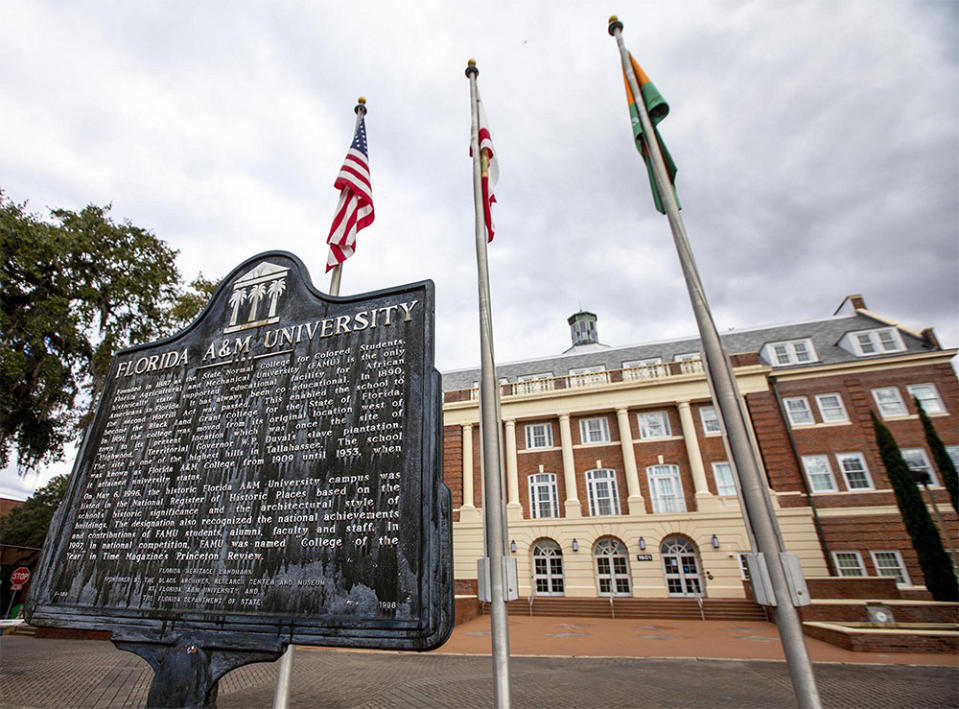
FAMU, or Florida A&M, was founded in 1887 in Jacksonville as two separate colleges: one for whites and one for Blacks, the latter of which would later move to Tallahassee. Anika Noni Rose and Will Packer are graduates.
Common
Actor, musician, Oscar winner (for original song for 2014’s Selma) and Emmy winner (2016’s 13th)
“When I was in high school, watching A Different World, they were showing Black colleges in such a positive light,” remembers Common (right). “Hip-hop artists were wearing African American College Alliance hoodies, which were super popular. Spike Lee had released School Daze. All of that was inspiring.
“But also, I was surely going to a historically Black college because my mother went to Central State in Ohio. In my junior year, I went on a Black college tour, and that solidified it for me. Even though my mother was saying, ‘You’re going to an HBCU,’ when I stepped on those college campuses and just seeing the people, I was like, ‘This is for me. This is for me.’ “
Staci R. Collins Jackson
Publicist and CEO, The Collins Jackson Agency
“Having an HBCU degree did not hinder me in my career until I was in Hollywood,” says Jackson. “I started in communications at Ebony and Jet magazines, where everyone is a Black executive — it was the visual equivalent of the offices in Boomerang. But when I transitioned from media to film and television in PR, I absolutely realized that people decided I was less than [because of her HBCU degree].
“Mind you, I had been promoted to be the vice president of Ebony/Jet and then at Oprah Winfrey’s Harpo Studios. But as I began working in film, I definitely had to prove myself even after I already had those two executive roles. In a way, I had to start over. I don’t think my peers ever had to do that.”
Karamo Brown
Host, The Karamo Show and Queer Eye
“I had found the courage freshman year to immediately start to let everyone in regarding my sexuality, but because I had leadership roles on campus, there were conversations happening in the administration’s office about my participation — especially when I wanted to pledge to a fraternity,” recalls Brown.
“But what I also learned in that time — and this is what I love about Black folks — I never experienced any of the direct harassment because Black women at FAMU surrounded themselves around me and made sure nobody said something [negative] to me. They said, ‘We rock with you. We love you.’
“So my experience was pretty positive. This gave me a direct path to going into the real world and becoming [one of the] first gay Black men on reality television, and then going on to becoming the first gay Black man to have a daytime talk show. I always knew there was a protection that came from Black folks — particularly Black women, who wanted to see me succeed and didn’t want to see my sexuality be used as a tool to hurt me. And that’s not true for everybody. It was just true for me.”

Hampton University
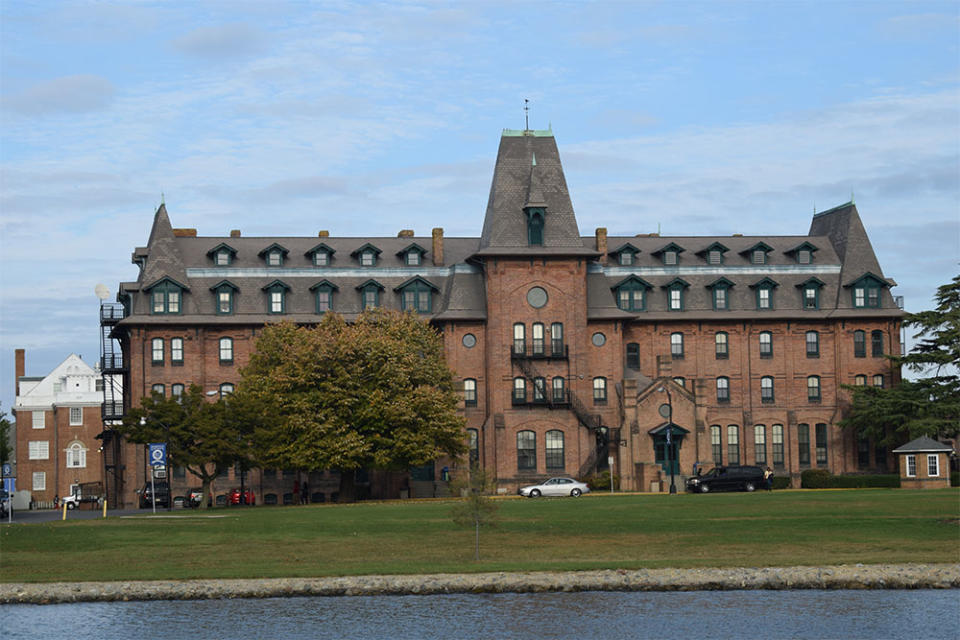
After its 1868 founding in Hampton, Virginia, as the Hampton Normal and Agricultural Institute, one of its graduates, Booker T. Washington, would start Tuskegee Institute in Alabama in 1881. Other grads include the mother of Martin Luther King Jr., Alberta Williams King, NASA engineer Mary Jackson, DJ Envy and Good Morning America alum Spencer Christian.
Wanda Sykes
Actress, producer and Emmy winner (1999’s The Chris Rock Show)
“After I finished college,” says Sykes (right), “one of my friend’s fathers said, ‘I don’t know why you went to that HBCU — you set yourself back because people see that degree and it doesn’t say the same thing as the one from the University of Maryland.’
“That hit me like, ‘Wow, this is our own people who are downplaying our colleges.’ You’ve been taught that our product is inferior, and now you’re trying to pass that on to us. But respectfully, I would argue with him that he was wrong. I knew what I was getting, and I knew how amazing Hampton was, what we were learning and what it was preparing me for the rest of my life.”
Robi Reed
Senior vp talent and casting at BET and Emmy-winning casting director (1995’s The Tuskegee Airmen)
One “fateful night” after meeting and driving Spike Lee to a play where her friend, costume designer Ruth Carter, was heading up wardrobe, Reed says the director (who had just finished making She’s Gotta Have It) mentioned having friends in town who wanted to meet up. “Ruthie and I said, ‘Cool,’ and those friends end up being Giancarlo Esposito and Laurence Fishburne,” says Reed of the serendipitous evening. “Spike writes on the back [of a postcard] his address and says, ‘Keep in touch.’ He says one day we’re going to work together,” she recalls. “Later, he sends me a script for School Daze, and the following year, we’re all on set in Atlanta.”
Ruth E. Carter
Costume designer, two-time Oscar winner (for both Black Panther films)
“I am so grateful I had that HBCU experience because I had no interference in terms of someone evaluating me based on race or on a demographic at the school. I am grateful I was not blocked by Jim Crow,” says Carter. “At Hampton, I directed A Day of Absence by Douglas Turner Ward, and it filled the theater. I never even thought about, ‘Oh, this is for the Black Student Union, who is 25 percent African American and people of color and those are the people who might attend.’ I was free to be me. It was not based on my race. When I’m on set now and I’m working with Ryan Coogler or I’m talking to Spike Lee about a project, I am free.”
Nyle Washington
Talent relations and awards manager, Netflix
“Hampton was an area that’s very much a melting pot,” says Washington about the Tidewater-area Virginia campus. “I know there’s a bias because, for people who did not go to HBCUs, they feel we only see everybody Black. But I’m like no, no, no. Hampton is such a diverse place to meet people from the Caribbean, Africa, East Coast, West Coast, Midwest. This diversity very much prepared me for working with different people with different personality types and from different areas. Hampton prepared me to pretty much figure out and get along with just about anybody.”
Kenny Smith
Executive producer and writer, black-ish and Kenan
“When I went to Hampton, I took a TV scriptwriting class with Ms. Beam and she changed my life,” says Smith. “She read my first script and told me it was great. I thought she was just being polite, because we had a good relationship, but she kept saying, ‘No, this is it.’ Then she submitted it for some local contests and it was recognized. I needed someone else to really say, ‘OK, you should do it.’ Her encouragement really set me on my path. Hampton had the people there to support me where I wanted to go. If I hadn’t gone to Hampton, I don’t know if it would have been the same thing. It’s like It’s a Wonderful Life, you change one thing, and it all falls apart. I love that I went to Hampton. I had a haven. I had instructors who were supportive and pushing me to follow my dream and not dismiss it that it couldn’t happen for me.”
Jackson State University
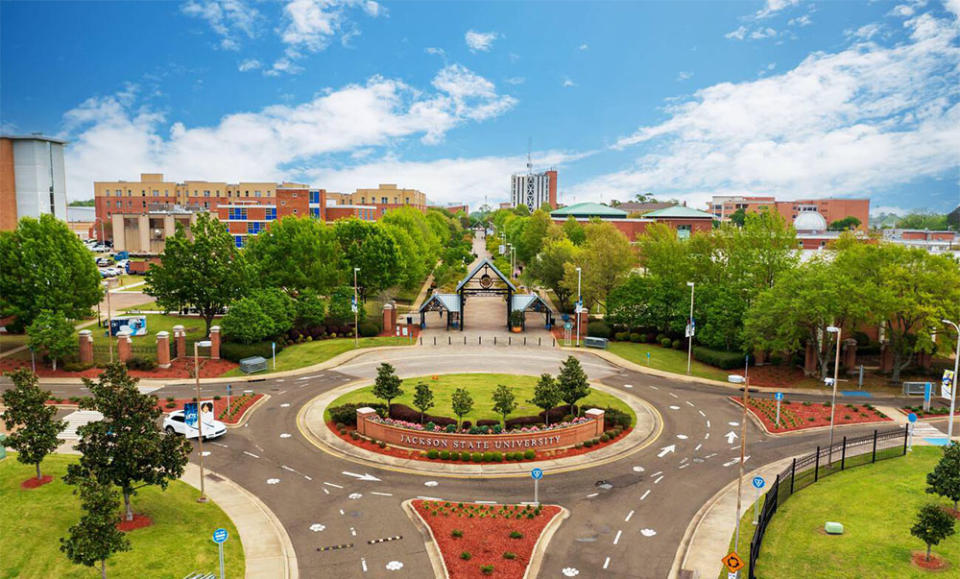
The school that became Jackson College in 1899 (and later graduated Morgan Freeman and NFL legend Walter Payton) was founded in 1877 in Natchez, Mississippi, as Natchez Seminary, part of the American Baptist Home Mission Society.
Mia Neal
Hairstylist, Oscar winner (2020’s Ma Rainey’s Black Bottom) and Emmy winner (2020’s Annie, Live!)
“I never would have gone to the makeup and wig apprenticeship program at Juilliard had I not been at Jackson State,” notes Neal. “I had two jobs while I was in Mississippi; one was working at MAC cosmetics. I had a co-worker who had finished the Juilliard program. She highly suggested I apply, but I had never even heard of the internship. So, because I was at Jackson State, I met her. And that is what propelled my career from there.”
Huston-Tillotson University
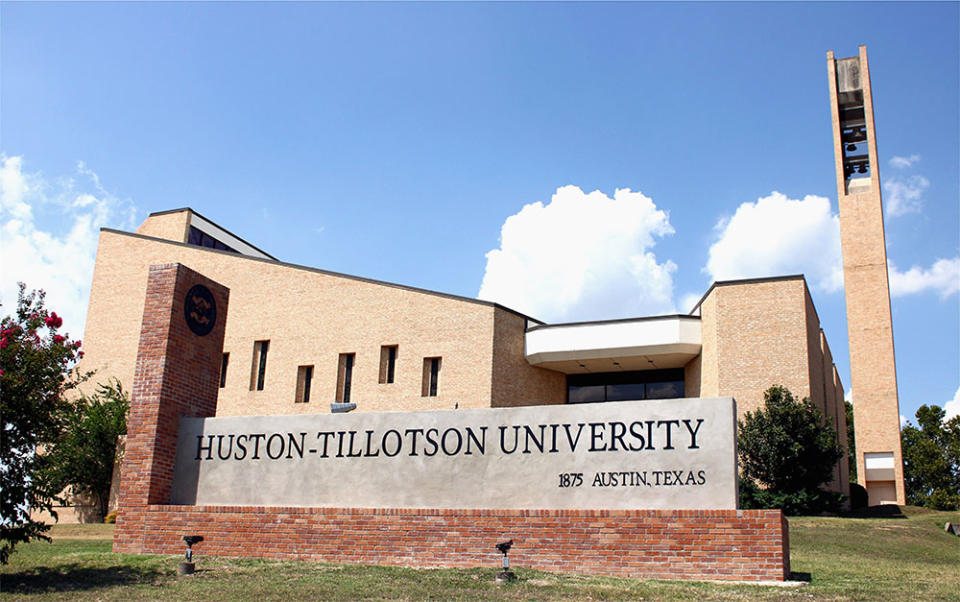
In 1952, the merger of Tillotson Collegiate and Normal Institute (founded in 1875) and Samuel Huston College (founded in 1876) would join the schools in Austin and graduate the likes of Tuskegee Airman Norman Scales Sr.
Jon Kee
Literary manager, Circle of Confusion
“When I think about Hollywood and diversity, I don’t know if there was a true pipeline for HBCUs prior to HBCU in L.A.,” says Kee, who earned two internships through Entertainment Industry College Outreach Program’s initiative HBCU in L.A. “I’ve been around for six years now, and I would be in rooms with executives, owners of companies, owners of agencies, and I would say, ‘Yeah, I go to an HBCU in Houston and they’d be like, ‘A C-U H-B-C what? What’s that? That was just in 2018.”
This story first appeared in the May 31 issue of The Hollywood Reporter magazine. Click here to subscribe.
Best of The Hollywood Reporter

